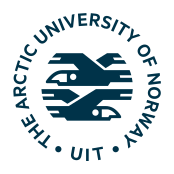📖Program Curriculum
Project details
This PhD project is a part of the Vice-Chancellor's Scholarship looking to support the climate change and net zero agenda. This opportunity forms a suite of five projects focusing on ecosystem health in a changing climate - the application of advanced multi-sensing systems.
The impact that climate change is having on the world’s ecosystems affects every one of us. Our capacity to grow food, to maintain clean and safe water supplies, and our ability to do this in a way that is sustainable, is dependent upon us understanding how soil and water are affected by our changing weather. The EcoSENSE research cluster (involving 5 PhD studentships) will develop new sensors for the accurate, sensitive and real-time monitoring of the health of water and soil systems. We will achieve this through an ambitious and exciting series of interconnected projects combining expertise in Materials Science, Chemistry, Geography and Computer Science, guided by input from key Industrial partners including MAST group Ltd and Severn Trent.
UK reservoirs store ~90 % of our water and are important sinks for nutrients (e.g. nitrogen and phosphorus) as well as inorganic and organic pollutants (e.g. heavy metals, pesticides, herbicides) and other persistent and emerging contaminants. Reservoirs are becoming increasingly challenging to treat due to eutrophication and subsequent algal growth (including toxic blue-green algae or cyanobacteria) causing problems for water treatment works. Further research is critical to understanding how reservoir sediments accumulate nutrients and other pollutants of concern and how they can potentially be remobilised into river systems. Currently water companies are not required to monitor what is present in their sediments. This project will work with Severn Trent partners to investigate reservoirs of concern and characterise what is present within sediments to identify potential risk contaminants to help drive a proactive approach to mitigation. This interdisciplinary project will involve both field and laboratory work and is part of a larger research cluster (EcoSENSE), which aims to develop advanced multi-sensing systems to monitor ecosystem health in a changing climate.
There are currently 273 major reservoirs in the UK currently which store ~90 % of our water. Reservoirs are important not only for drinking water provision but also for generating clean electricity through hydropower, providing flood alleviation, storing irrigation water for agricultural use as well as providing other important ecosystem services. Reservoirs act as sinks for sediments and nutrients and other potentially harmful contaminants by storing them within sediments and effectively providing a buffer for downstream river systems, protecting them from a cocktail of chemical and biological pollutants and nutrients. However, reservoirs are becoming increasing threatened by impacts associated with climate change e.g. floods and droughts, as well as human-induced activities e.g. land use change, poor land management etc. This has major implications not only for ecosystem health within the reservoir and downstream river systems but also creates costly problems for water treatment companies to deal with and rectify. Currently water companies are not required to monitor what in present in their reservoir sediments, but by characterising their chemical profile can help companies take proactive mitigation measures and help protect water quality for both humans and the environment. Eutrophication and associated algal growth are becoming an increasing challenge for water companies to treat, not only in terms of chemical remediation, but also in relation to biological contamination and the production of odorous compounds such as geosmin and methylisoborneol (MIB) produced when water is contaminated by bacteria.
This PhD studentship will involve field and laboratory-based analysis, combining high frequency and weather-event water quality monitoring (monthly, seasonal) with longer term (annual/decadal) perspectives from the sediment archive necessary to characterise the chemical, nutrient and biological patterns and profiles of reservoir waters and their sediments in several regional reservoirs (all Severn Trent sites). We will conduct mesocosm experiments to look at how individual and mixed compounds influence ecosystem health through looking at impacts on diatom communities and through the release of microbially-mediated odorous compounds under different climate conditions (such as under warmer conditions, and over a range of nutrient concentrations). The student will gain experience in analytical chemistry, spectroscopy, microscopy and identification of diatom communities to understand how they can act as bioindicators associated with water quality.
The EcoSENSE research cluster will develop a new class of advanced sensing materials for the continuous analysis of the health of aquatic and terrestrial ecosystems. This is key for understanding how ecosystems function allowing us to respond to the current drivers of environmental change.
This highly interdisciplinary project will be in collaboration between Chemistry and Geography & Environment, jointly supervised by Dr Helen Glanville and Prof Dave Ryves (Geography & Environment) and Dr Jim Reynolds (Chemistry). The student will have the opportunity to learn practical field sampling skills, experimental manipulations (mesocosms) and targeted analytical chemistry within a laboratory setting, therefore gaining a truly multidisciplinary training in cutting-edge environmental and climate change science.
Show less







